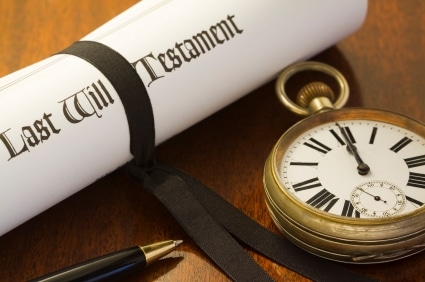Probate: What is it and how does it work?
When a loved one dies, the impact can be huge. For the person who is named as executor of the deceased’s estate, there is often a lengthy list of jobs to be done at an emotionally challenging time.
An executor must deal with the estate while being mindful of the surrounding legal issues. It can be a difficult process and that is why it’s a good idea to understand the basics of the law of probate.
What is an executor?
When a person makes a will, they must appoint an executor. When the person dies, the executor becomes the legal representative of the person’s estate. An estate is the deceased person’s collective belongings, assets, debts and other liabilities.
The executor is responsible for ensuring that the terms of the will are carried out. An executor must:
- Locate and collect the deceased’s assets.
- Pay the estate’s debts.
- Distribute the estate to the beneficiaries in accordance with the requirements of the will.
- How this is done depends on the terms of the will and the nature and extent of the assets of the estate.
What is probate?
At its most basic, probate is the legal process of proving a will and the official recognition by the Court that the will is legally valid.
Grant of Probate
The Grant of Probate is a certificate issued by the Court. It grants the executor the right to deal with the deceased’s estate. The estate’s assets and liabilities vest in the executor.
The Grant of Probate is proof to everyone that the executor is entitled to deal with the estate.
Is a Grant of Probate always necessary?
Whether a Grant of Probate is needed will depend on the nature and extent of the assets and the complexity of the estate. Estates with modest assets and liabilities may not need a Grant of Probate at all and may be dealt with informally.
But, for example, where there is real estate, an accommodation bond refund or substantial shareholdings, a Grant of Probate will always be necessary.
Consider this: the deceased had some bank accounts with XYZ Bank, with a total value of $150,000. XYZ Bank needs to be able to pay out the money and close the accounts. The executor has provided a Grant of Probate, which is proof that the executor is the person who is entitled to collect the money.
What if there was no will?
If a person dies without a will, they are intestate.
A person who wants to inherit some or all of the estate may make an application to the Supreme Court to have an administrator appointed to deal with the estate. If the Court grants the application, this is known as a Grant of Letters of Administration.
There is an order of priority for those who can make an application, including the deceased’s:
- Spouse or domestic partner
- Children
- Parents
- Siblings
There is a similar priority list for those who can be beneficiaries of an intestate estate.
Where to start
A Grant of Probate and Letters of Administration can be highly technical applications to make. Because the Court must carefully assure itself that the applications are not fraudulent, requirements are stringent.
Documents to be lodged with a probate application include:
- The original will.
- The death certificate.
- Executor’s Oath
- A Statement of assets and liabilities of the estate.
Often additional evidence will be required, for example:
If there are additional staple holes or markings on the will, they will require explanation.
If there are issues with the way in which the will was executed, an affidavit will be required to support the application.
Any error in the documents will stall the application. But the good news is that probate practitioners can provide advice, guide you through the process and prepare the paperwork. For many clients, this alleviates much of the stress associated with executor duties.
Websters Lawyers has excellent experience in this area. If you are in need of some probate assistance, contact us today for a free first interview.











